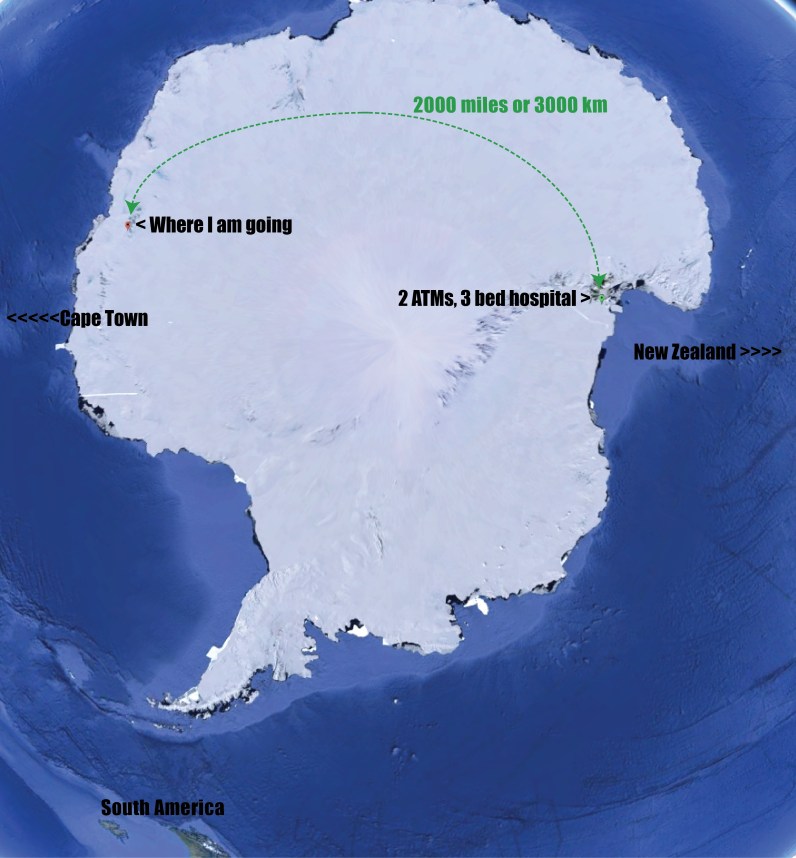Antarctica is a dream destination for many. But travelling to such a remote location also comes with its risks. You are closer to people in outer space (space station is ~250 miles away) than you are from civilization. Sure, Antarctica may be a continent, but is does not have the amenities of the rest of the world. There may be two ATMs on the continent and a three bed hospital but that is all at one station, on one side of the continent. Just to give you context, I am travelling to the Princess Elisabeth Station, which is 2000 miles from McMurdo Station across the continent. McMurdo is closer to the station where I am travelling to than Cape Town, South Africa (2700 miles away). Due to the remote nature of the station, one’s medical condition needs to be thoroughly evaluated before going to Antarctica. If something medically goes wrong while we are at the station, we are seven to ten days away from evacuation. Some of this depends on the weather conditions. Some depends on where the few planes are located.

So what goes into a medical evaluation for travelling to Antarctica? That depends a lot on who you are travelling with. Thirty countries operate research stations on the continent. The two of the biggest research programs on Antarctica (British Antarctic Survey and United States Antarctic Program) have very prescribed medical testing that participants must pass. Each participant has a medical assessment that is reviewed on a case by case basis depending on the individual, the destination and the length of the deployment. If you are curious, you can read more about the British Antarctic Survey medical clearance information here .
For travelling to the Belgian station, both myself and Steffi has to undergo a similar evaluation. They wanted to make sure we were healthy enough to minimize the risks of a medical emergency when we are so far away from civilization. This testing included an amazing number of blood tests (e.g. CBC, Hep A, Hep B, Hep C, HIV, other indicators such as renal and hepatic function and endocrine system), an ophthalmology report, complete dental exam and treadmill stress test. Also because we are travelling to the station via South Africa, we had to prove that my vaccinations were up to date (Hep A, Hep B, measles mumps rubella and polio).
As a female participant, you also need to prove that you are not pregnant two weeks before you departure. I have to say that going to the doctor’s office for a pregnancy test earlier this week was quite the experience. The doctor and nurses tried to access my emotional state depending on the test results (e.g. would I be excited to be pregnant? Was I trying to get pregnant?). Since I knew I was not pregnant and I wanted the results to be negative, I was an odd patient. Once I peed in the cup, I went back to my exam room to wait for the results. When the nurse came back to the room, she came in and said “Congratulations, you are pregnant!” Then she quickly added “Just kidding!” We all had a good laugh!
Nonetheless, the medical examination component of the trip was very time consuming and also made you realize how lucky you are to be in good health!